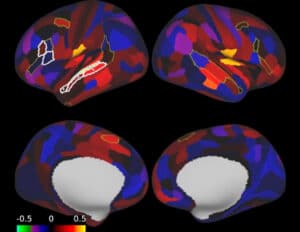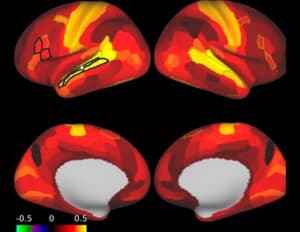
Contact Us

Autism Spectrum Disorder (ASD) is a neurodevelopmental condition that affects social interaction, communication, and behavior. While traditional therapies such as behavioral interventions and medications can help manage symptoms, they may not address the neurological root of ASD.
At Neurotherapeutix, we offer fMRI-guided TMS therapy, an innovative, non-invasive treatment designed to improve brain connectivity and enhance overall function.
To learn more about autism and how we can help, contact us directly or continue reading below.
ASD is a broad condition that varies in severity and symptom presentation. It is characterized by challenges in:

Autism is considered a spectrum disorder, meaning it encompasses various presentations and levels of support needs. Some individuals may require minimal assistance, while others need significant intervention.
Common classifications include:
ASD symptoms vary widely but commonly include:
The exact cause of ASD is unknown, but research suggests that multiple factors contribute to its development, including:
Autism is typically diagnosed through a comprehensive evaluation that includes:
At Neurotherapeutix, we specialize in fMRI-guided TMS therapy, which improves brain connectivity to treat the neurological aspects of ASD. This approach differs from traditional TMS because it uses real-time imaging to identify specific neural disruptions.
Autism is fundamentally a disorder of connectivity, primarily involving interhemispheric brain networks.
As in depression, the standard rTMS approach typically uses a fixed location relative to the motor cortex. However, Neurotherapeutix takes a personalized connectivity-based targeting approach, which offers enhanced efficacy by:
Research has shown that repetitive transcranial magnetic stimulation (rTMS) holds the potential to alleviate core ASD symptoms by targeting social and executive function deficits.
Our approach involves theta-burst stimulation to the prefrontal cortex, particularly the right inferior frontal gyrus, which has shown promising results in improving adaptive functioning in individuals with ASD.
Standard rTMS treatments applied to the dorsolateral prefrontal cortex (DLPFC) have demonstrated clinical improvements in social cognition, communication, and repetitive behaviors. Our experience indicates that targeted TMS therapy applied to the DLPFC is an effective intervention for executive function deficits in ASD.
Leveraging our rsFC MRI technology, we identify and treat malf
Maps Neural Connectivity: Uses fMRI imaging to pinpoint areas of dysfunction.
Targets Key Brain Regions: Stimulates prefrontal cortex and social-cognitive networks.
Improves Communication Between Brain Regions: Enhances neural pathways to support cognitive and social functions.
Reduces Repetitive Behaviors: Studies indicate TMS can modulate brain activity linked to restricted behaviors in ASD.
Studies utilizing EEG-based functional connectivity for TMS treatment in ASD have demonstrated significant symptom reduction in:
These improvements have been observed to persist six months post-treatment, indicating long-term benefits.
Our own research supports these findings, as patients treated with anatomically precise rsFC MRI-guided TMS experience better clinical outcomes and longer-lasting clinical improvements compared to standard TMS or EEG-based approaches.
Reduced Anxiety and Emotional Dysregulation – Helps with self-regulation and adaptive coping strategies.
Non-Invasive and Drug-Free – No medications or invasive procedures required.
Personalized Treatment Plans – Based on individual brain mapping.
Long-Lasting Effects – Many patients experience sustained improvements in communication and behavior.


At Neurotherapeutix, we are committed to providing leading-edge treatment for individuals with ASD.
Our fMRI-guided TMS therapy is a groundbreaking approach focusing on neurological rehabilitation rather than symptom management.
If you or a loved one is seeking an advanced, non-invasive approach to managing ASD symptoms, Request an appointment or contact us today.

Call us at (917) 388-3090 or click to request a regular or telehealth appointment.
Neurotherapeutix
171 East 74th Street, Unit 1-1 New York, NY 10021

Neurotherapeutix is the leading clinic for functional imaging guided transcranial magnetic stimulation (TMS), a safe, innovative, and non-invasive methodology for treating a wide range of acute and chronic mental disorders and brain injuries. Our advanced fMRI technology allows us to map the brain for the… Learn More »
By: Neurotherapeutix NYC
Reviewed By: Marta Moreno, Ph.D
Published: March 24, 2023
Last Reviewed: September 27, 2024
QUICK INQUIRY
Contact us to get an estimate for your medical services requirements. You can fill in the form to specify your medical requirements or you can call us directly.